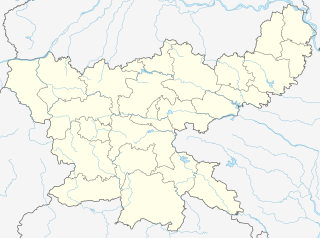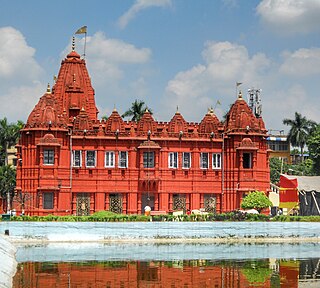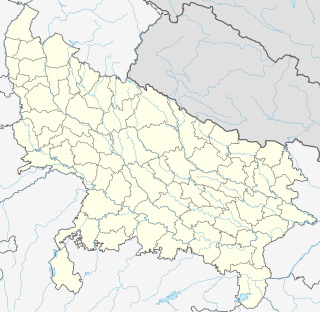This page is based on this
Wikipedia article Text is available under the
CC BY-SA 4.0 license; additional terms may apply.
Images, videos and audio are available under their respective licenses.

Stanley Medical College (SMC) is a government medical college with hospitals located in Chennai, Tamil Nadu, India. Though the original hospital is more than 200 years old, the medical college was formally established on 2 July 1938.

Porur is a residential neighbourhood of Chennai, India. It comes under Chennai Corporation.

The Indian Medical Association (IMA) is a national voluntary organisation of Doctors of Modern Scientific System of Medicine in India, which looks after the interest of doctors as well as the well being of the community at large. It was established in 1928 as the All India Medical Association, renamed "Indian Medical Association" in 1930. It is a society registered under The Societies Act of India.

All India Institute of Medical Sciences, New Delhi is a medical college and medical research public university based in New Delhi, India. AIIMS was established in 1956 and operates autonomously under the Ministry of Health and Family Welfare.
The Girna River is a river in the state of Maharashtra in southern India. It gets its name from the goddess Giraja, also known as Parvati.
Jama or JAMA may refer to:

Barajamda is a census town in Pashchimi Singhbhum district in the state of Jharkhand, India.

Gua is a census town in Pashchimi Singhbhum district in the Indian state of Jharkhand. It is a mining township situated in the Chotanagpur Plateau. The mines are operated by the Steel Authority of India Limited and are linked to IISCO at Burnpur.

Abhay Bang and Rani Bang are Indian social activists and researchers working in the field of community health in the Gadchiroli district of Maharashtra, India. They have revolutionized healthcare for the poorest people in India and have overseen a programme that has substantially reduced infant mortality rates in one of the most poverty-stricken areas in the world. The World Health Organization (WHO) and UNICEF have endorsed their approach to treating newborn babies and the programme is currently being rolled out across India and in parts of Africa. The Bangs founded the 'Society For Education, Action and Research in Community Health' (SEARCH) – a non-profit organisation, which is involved in rural health service and research. The couple is the winner of the Maharashtra Bhushan Award. Sanjay Gandhi Postgraduate Institute of Medical Sciences, Lucknow has conferred honorary doctorates on Abhay and Rani Bang. SNDT Women's University, Mumbai has also awarded Honoris Causa to Rani Bang. The Lancet has honoured the couple as 'the pioneers of health care in rural India'. Abhay and Rani Bang are the first recipients of the Distinguished Alumni Award from the Department of International Health at the Johns Hopkins Bloomberg School of Public Health. They were also inducted into the Johns Hopkins Society of Scholars. The Bangs are honoured for their leadership in community-based health care that is now helping to save the lives of millions of the most vulnerable newborns and children. During their careers, the Bangs have helped foster a renaissance in community-based primary health care. In 2016, Johns Hopkins University conferred the Distinguished Alumni Award upon them.

Belgachia is a neighbourhood of north Kolkata, earlier known as Calcutta, in Kolkata district in the Indian state of West Bengal.
Kanakumbi is a village in Belgaum district in Karnataka, India.. A beautiful village situated on boarder of satteri taluka Goa. Near cities are mapusa 65km. Punaji 71km. Belgaum city 45km. 101%konkani speaking people village.
And people use village officially language is marathi. Karnataka and maharashtra boarder disputes on thise village but kanakumbi people not happy to accept or merge in maharashtra. But linguistic diversity kanakumbi village and their neibhar Villages injusticed by central govt.
All people village belong hindu 96kuli Maratha community.village situated on MH Goa Ka boarder.
The Journal of the American Medical Directors Association (JAMDA) is a peer-reviewed medical journal published by Elsevier twelve times a year as of January 2013. It is the official journal of the American Medical Directors Association. The journal covers all aspects of long term care and geriatrics. JAMDA's readership includes internists, family/general practitioners, nurses, rehabilitation therapists, researchers and persons interested in caring for older persons.
AMDA – The Society for Post-Acute and Long-Term Care Medicine, commonly called AMDA and previously called AMDA – Dedicated to Long Term Care Medicine and American Medical Directors Association, is a medical specialty professional organization with a focus on providing long-term care.
The Constitution of India makes healthcare in India the responsibility of the state governments, rather than the central federal government. It makes every state responsible for "raising the level of nutrition and the standard of living of its people and the improvement of public health as among its primary duties".
Shiv Kumar Sarin is an Indian gastroenterologist, hepatologist, medical researcher and writer and a former chairman of the Board of Governors of the Medical Council of India. He is the director of Institute of Liver and Biliary Sciences (ILBS), the first dedicated institution for advanced research on liver diseases and a deemed university under G. B. Pant Hospital, New Delhi. His contributions are reported behind the founding of the School of Hepatology of the Asian Pacific Association for study of Liver (APASL), which is housed at ILBS campus. He is a recipient of the Shanti Swarup Bhatnagar Prize, the highest Indian award in the science category. The Government of India awarded him the third highest civilian honour of the Padma Bhushan, in 2007, for his contributions to Indian medicine.
Sujoy Bhushan Roy was an Indian cardiologist and the founder Head of the department of the Cardiology at the All India Institute of Medical Sciences, Delhi. He was the president of the Cardiological Society of India in 1972. He was known for medical research in cardiology and was reported to have coined the name, Juvenile Rheumatic Stenosis. The Government of India awarded him the third highest civilian honour of the Padma Bhushan, in 1972, for his contributions to medical science.

Purusottampur, is a village in the taluk of Champua, district of Kendujhar, in the Indian state of Odisha. The total geographical area of village is 160 hectares.









